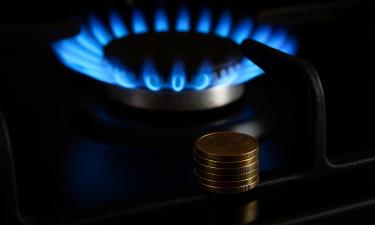What the countries of the former USSR have achieved in 30 years of independence
During 30 years of independence, former Soviet countries have achieved different results. However, the results of independence are not always comforting.
As Pavel Pryanikov noted on his Facebook page, one can already summarize brief economic results of the last 30 years on post-Soviet space.
According to him, Russia finally recovered to the level of the 1990 RSFSR just a few years ago. It is believed that we have per capita GDP worth 10,000 dollars per person (approximately the level of Malaysia, in Europe - Romania). Thus, the country has spent three decades to return to the level from which it began its independence.
The years of "rising," under the guidance of "brilliant managers," generals and strategists could only demonstrate that, given the macroeconomic stagnation since the late 1970s, the last 40 years have been the era of the "Great Stagnation" for Russia.
The Baltic States traditionally had a higher living standard in comparison with the rest of the USSR. You can treat them as you like, but today the per capita GDP of the Baltic States amounts to 15-20 thousand dollars. That is, they have added a little over the past 30 years, but primarily owing to Russia and the EU.
Ukraine and Moldova, unfortunately, became epicenters of major transformations and national construction. They did not differ much from the RSFSR when they used to be members of the USSR. They had the same per capita GDP worth $10,000). Today, however, this figure for them is about 2,5-3 thousand. In 30 years, their economic level has collapsed four times given their economic dependence on the Russian Federation. Today, Ukraine and Moldova stand in line with such countries as Nigeria, Laos and Honduras (in terms of GDP per capita).
Contrary to Lukashenka's stubbornness, the GDP of Belarus is $6,000. This is about 60 percent of their Soviet level (a dubious "economic miracle"). In many respects, the Belarusians managed not to degrade to the level of Ukraine only with the help of financial support from Russia at the level of ten percent of Belarusian GDP.
According to Pryanikov, "this could be compared to Russia receiving $140 billion each year from someone, ten percent of our GDP, or 10 trillion rubles (this is a half of the federal budget)."
In the republics of the Caucasus, the per capita GDP indicator collapsed to $4,000 (even oil-and-gas Azerbaijan manages to live so poorly; this is the level of Angola and El Salvador). Their economies could be 2-3 times higher.
Thanks to mineral resources, Kazakhstan has kept at the level of Russia - $9,000. Oil, gas and metals did not let the country fall below the level that they had in 1990.
Central Asia slips into the Middle Ages
Tajikistan's per capita GDP is evaluated at $800. Tajikistan was never a well-to-do nation, not even in the times of the USSR, the Tajik economy collapsed eight times. The situation is pretty much the same in Haiti and Rwanda.
- Kyrgyzstan - $1200.
- Uzbekistan - $1500 (similar to Cameroon and Zambia).
- Turkmenistan - $7,500. The country managed to maintain its late Soviet levels through gas exports, having made its citizens rightless.
Thirty years have given all countries an opportunity to prove themselves and show the results of their independent "voyage."
We can now observe the results of the civilizational catastrophe (ten out of fifteen countries) and neat poverty (the Baltic States, Russia, Kazakhstan), the author sums up.
However, experts also discuss which country they can now call "normal," and life in it - decent.
Given the frequency of mass shootings and incidents of police violence in the United States, there is absolutely no reason left to praise America. This, of course, breaks the mould for those who, over the past 20 years, have been glorifying the political and ideological structure of the West. Republicans and Democrats, with their undercover struggle for the White House, Congress, state administrations and large industrial and financial assets, have got everyone inside and even outside the country.
Although the US system has always looked very stable, it turned in the infamous year 2020 that citizens and political forces of the formerly exemplary democracy divide themselves into "fascists" and "Marxists" today - two ideologically irreconcilable groups.
If in today's America you are standing up for BLM, gays, green energy and acceptance of migrants in the country, then you are a Marxist. If you stick to traditional views on family, religion, oil and gas and gender equality, then you're a fascist or a Nazi.
In Europe, Alternative for Germany and the French National Front have managed to attract many followers in recent years against the backdrop of controversial migration policies in the European Union and the introduction of more liberal views on marriage and the Church. Different electoral groups endlessly fight among themselves.
Thus, today's healthy state is a country that is capable of accepting its own history in all its diversity and analyzing its mistakes - a country that does not obey requirements to pay and repent. This is also a country that respects its own military and law enforcement forces, which sees decades ahead, does not live in debt, which does not live from one electoral cycle to another, but eyes long-term sustainable development and gives conditionally equal opportunities for implementation.
Subscribe to Pravda.Ru Telegram channel, Facebook, RSS!





